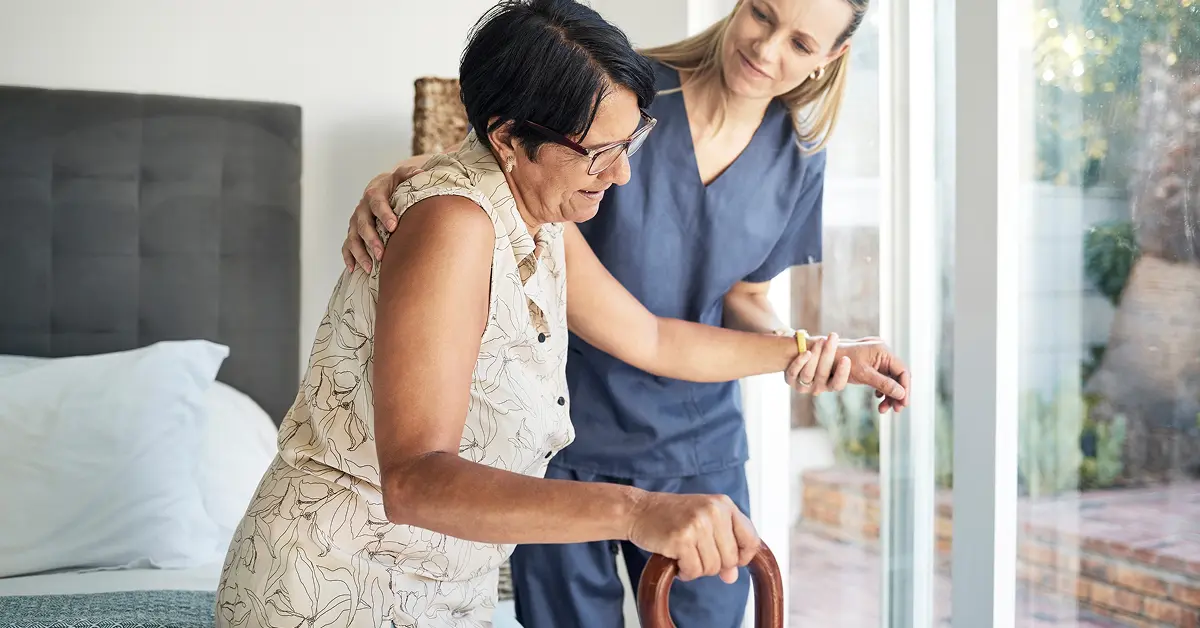Recovering at home after a hospital stay or medical procedure can be a challenging journey. Patients often require continuous care, monitoring, and emotional support to regain strength and return to their normal routine. While family members do their best to provide care, trained Patient Care bring professional expertise that ensures safety, comfort, and effective recovery at home.
Why Home Recovery Matters
Home recovery allows patients to heal in a familiar and comfortable environment. Being at home reduces stress, promotes mental well-being, and often accelerates the healing process. However, improper care or lack of professional supervision can lead to complications, delayed recovery, or even readmission to the hospital.
Trained patient caregivers bridge this gap by providing skilled care tailored to individual needs, ensuring that patients recover safely and efficiently.
The Role of Trained Patient Caregivers
A trained patient caregiver is not just someone who assists with daily activities. They are healthcare professionals or trained personnel who specialize in supporting patients during recovery. Their responsibilities include:
- Medical Assistance: Administer prescribed medications, monitor vital signs, manage medical equipment, and assist with rehabilitation exercises.
- Personal Care: Help patients with bathing, grooming, dressing, and other personal hygiene tasks.
- Mobility Support: Assist with walking, transferring from bed to chair, and physical therapy exercises safely.
- Nutrition and Meal Management: Prepare meals, assist with feeding, and ensure dietary requirements are followed.
- Emotional Support: Offer companionship, encouragement, and emotional care to reduce stress and anxiety.
- Communication with Healthcare Providers: Report changes in condition and coordinate with doctors for timely interventions.
Benefits of Hiring Trained Patient Caregivers
Enhanced Safety
Trained caregivers handle emergencies, prevent falls, and manage medications, significantly reducing the risk of accidents or complications.
Personalized Care
Caregivers provide tailored care plans to meet individual patient needs based on their medical condition, age, and recovery plan.
Faster Recovery
Professional supervision ensures patients follow prescribed routines, medications, and exercises accurately, accelerating recovery.
Relief for Family Members
Hiring trained caregivers allows families to focus on emotional support while professionals handle medical and daily care needs.
24/7 Availability
Continuous monitoring ensures patients receive immediate help whenever required, even during night hours.
Choosing the Right Patient Caregiver
Selecting the right caregiver is crucial for safe home recovery. Consider the following factors:
- Certification and Training: Verify proper training in patient care, first aid, and relevant medical procedures.
- Experience: Caregivers with experience in similar medical conditions are more effective.
- References and Reviews: Check feedback from previous clients to gauge reliability and quality.
- Compassion and Communication Skills: Empathy and effective communication are essential for patient care.
- Flexibility: Caregivers should adapt to changing recovery needs.
Services Offered by Trained Patient Caregivers
- Post-Surgery Care: Specialized care for orthopedic, cardiac, or abdominal surgery recovery.
- Chronic Illness Support: Assistance for conditions like diabetes, hypertension, or respiratory issues.
- Elderly Care: Mobility support, medication management, and daily assistance for aging patients.
- Rehabilitation Support: Help with physiotherapy exercises, mobility training, and occupational therapy routines.
- Palliative Care: Compassionate care for patients with serious illnesses, ensuring comfort and dignity.
Tips for a Smooth Home Recovery
- Create a Safe Home Environment: Remove tripping hazards, install grab bars, and ensure proper lighting.
- Follow Medical Instructions: Ensure medications, diet, and exercises are strictly followed.
- Maintain Communication: Stay in touch with the caregiver and healthcare providers to monitor progress.
- Encourage Mobility: Support gentle exercises and movement as advised by doctors or physiotherapists.
- Emotional Support: Spend quality time with the patient, offer reassurance, and engage in conversations.
Conclusion
A safe home recovery is achievable with the right combination of medical guidance, family support, and professional care. Trained patient caregivers play a pivotal role in ensuring patients heal efficiently while maintaining comfort, dignity, and emotional well-being.
Investing in trained caregivers accelerates recovery and provides peace of mind to families. Whether for post-surgery recovery, chronic illness management, or elderly care, professional caregivers are essential allies in the journey toward health and independence at home.
Contents
Our 24*7 services
Latest Posts
- What Is Respite Care and Why Is It Important
- Affordable home care for senior citizens in India
- Caring for Seniors with Dementia or Alzheimer's at Home
- Senior Caregiving A Guide for Every Family
- How to Write a Caregiver Resume That Gets You Hired
- How Care After Hospital Discharge Speeds Up Recovery at Home
- How to Get Home Health Care for Seniors Through Medicare
- What Does a Senior Citizen Caregiver Really Do at Home
- How to Care for Elderly Parents with Alzheimer’s or Dementia
- How to Get 24-Hour Care for Seniors at Home



